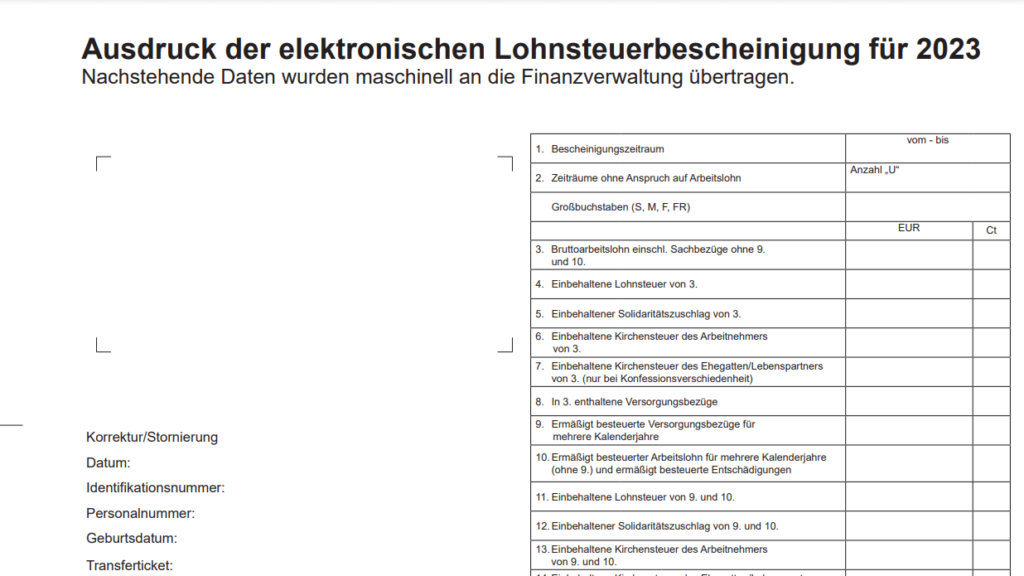In the dynamic landscape of German taxation, the ability to navigate the complexities of backdated tax returns is crucial, especially for Master’s students. This comprehensive guide aims to provide a detailed understanding of submission deadlines, obligations, and the unique provision of Loss Carryforward, offering an extended timeframe for students.
Key takeaway’s:
- Individuals exempt from mandatory tax return submissions are eligible to file retrospective tax returns.
- Master’s students enjoy a distinct advantage, being able to submit tax returns dating back up to seven years.
- Other individuals are permitted to submit tax returns for a retrospective period of four years.
1. Submission Deadlines: Obligation vs. Voluntary Submission
1.1 Obligation to Submit a Tax Return
For individuals obligated to submit a tax return, the looming deadline for the 2023 tax year is September 2, 2024. Missing this deadline can result in penalties, making it imperative for individuals falling into this category to adhere to the prescribed timeline.
1.2 Voluntary Submission
On the other hand, individuals who choose to submit their tax returns voluntarily can do so retrospectively for up to four years. This process, known as an application assessment, opens the door for optimizing tax situations and potentially securing refunds for the 2019, 2020, 2021, and 2022 tax years.
2. Extended Timeframe for Students: Loss Carryforward
2.1 Understanding Loss Carryforward
One of the unique features for Master’s students in Germany is the provision of Loss Carryforward, or “Verlustvortrag” in German. This provision allows individuals to offset losses from one year against income in subsequent years, a particularly relevant concept for students incurring education-related expenses.
2.2 Timeframe for Loss Carryforward
Unlike the standard four-year window for voluntary submissions, students with a Loss Carryforward can retroactively submit tax returns for up to seven years. This extended timeframe recognizes the prolonged duration of Master’s programs and provides students with the flexibility to optimize their tax situations over a more extended period.
2.3 How Loss Carryforward Works for Students
- Identifying Eligible Losses: Tuition fees, books, educational materials – these are among the eligible expenses that contribute to a negative taxable income for students.
- Offsetting Losses Against Future Income: A key benefit of Loss Carryforward is the ability to offset losses from one year against positive income in subsequent years. This strategic maneuver can result in a reduced taxable income and potential tax refunds.
- Submitting Tax Returns Retroactively: The extended seven-year timeframe allows students to retroactively submit tax returns for the years covered by the Loss Carryforward. This presents a unique opportunity for students to maximize benefits and optimize their overall financial outcomes.
2.4 Maximizing the Benefits
- Detailed Record-keeping: To make the most of the Loss Carryforward provision, meticulous record-keeping is crucial. Proper documentation ensures that all deductible items are accurately accounted for in tax returns.
- Professional Guidance: Given the intricacies of Loss Carryforward, consulting with a tax professional is advisable. Professionals can provide insights into maximizing deductions, optimizing the use of Loss Carryforward, and ensuring compliance with relevant tax laws.
3. Considerations for Employees and Students: Tailoring Your Submission
3.1 Employees
Employees may find additional income sources or deductions that were initially overlooked. Filing amendments or corrections to include missed information can be a strategic approach to ensure that their tax returns accurately reflect their financial situation.
3.2 Students
For students, educational expenses such as tuition fees and materials are essential considerations. Including these expenses in tax returns can contribute to a reduced taxable income, potentially resulting in tax benefits and refunds.
4. Consulting with Professionals: Ensuring Accuracy and Compliance
Given the complexity of tax regulations and individual circumstances, seeking the guidance of a tax professional is a prudent step. Professionals can offer personalized advice, ensuring accuracy in submissions, and helping individuals navigate the intricacies of the German tax system.
5. Keeping Abreast of Changes: Stay Informed
Tax regulations are subject to change, underscoring the importance of staying informed. Regularly checking official sources and seeking professional advice ensures that individuals are up-to-date with the latest developments and compliant with current tax laws.
Conclusion
Master’s students in Germany have a unique set of opportunities and challenges when it comes to backdated tax returns. Understanding the submission deadlines, leveraging the benefits of Loss Carryforward, and tailoring submissions to individual circumstances are key steps in optimizing financial outcomes. By staying informed and seeking professional advice, students can navigate the German tax landscape with confidence, ensuring compliance and potentially maximizing benefits throughout their academic journey.


